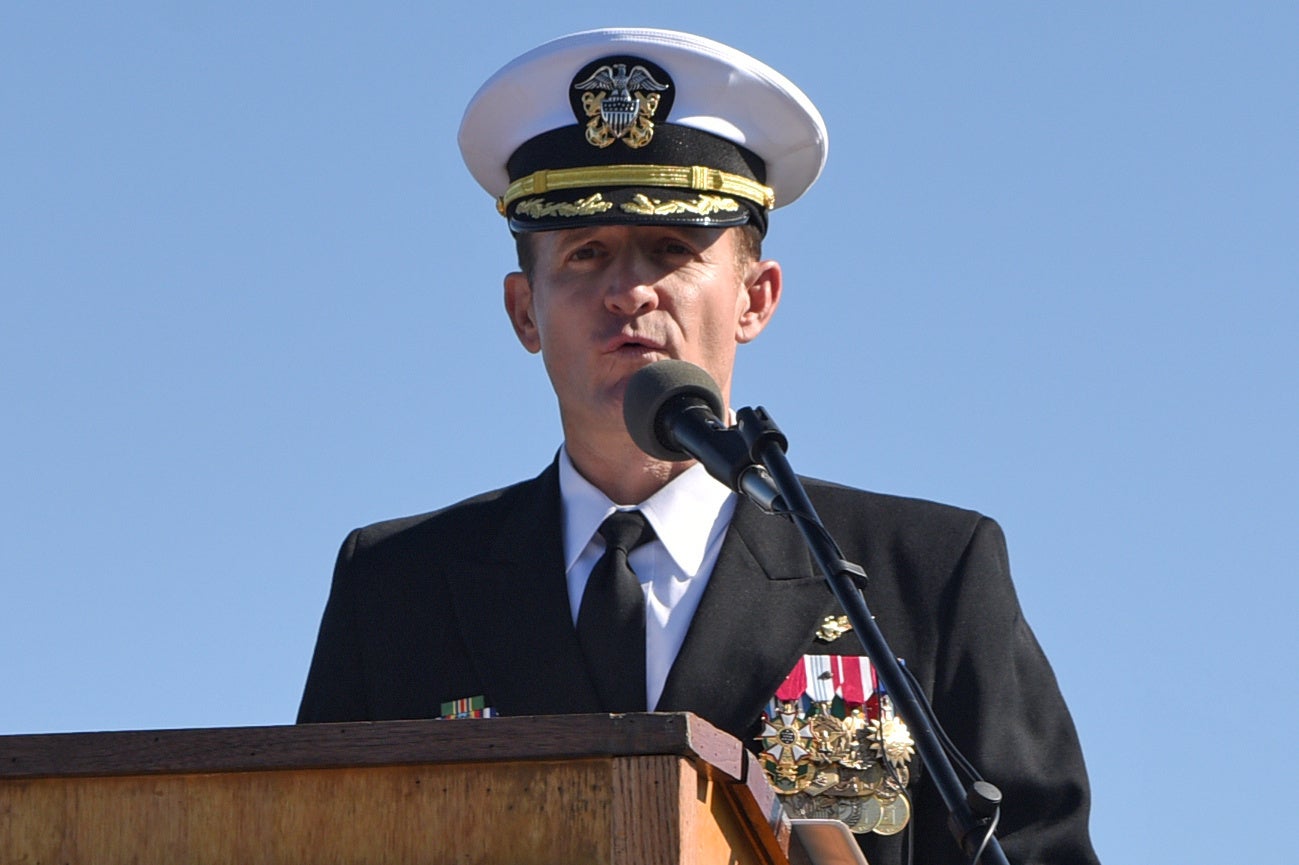Navy reportedly recommends reinstating fired USS Theodore Roosevelt captain
The Navy has recommended reinstating Capt. Brett Crozier, the commanding officer of the USS Theodore Roosevelt whose plea for help during a novel coronavirus (COVID-19) aboard aboard the ship not only cost him his job but led the acting Navy secretary to resign shortly afterwards

The Navy has recommended reinstating Capt. Brett Crozier, the commanding officer of the USS Theodore Roosevelt whose plea for help during a novel coronavirus (COVID-19) aboard aboard the ship not only cost him his job but led the acting Navy secretary to resign shortly afterwards, according to media reports.
Pentagon spokesman Jonathan Hoffman confirmed on Friday that Chief of Naval Operations Adm. Michael Gilday had presented Esper with a “verbal update” on the investigation into the coronavirus outbreak aboard the Theodore Roosevelt.
Hoffman did not say what Gilday had recommended.
“After the secretary receives a written copy of the completed inquiry, he intends to thoroughly review the report and will meet again with Navy leadership to discuss next steps,” Hoffman said in a statement. “He remains focused on and committed to restoring the full health of the crew and getting the ship at sea again soon.”
The Navy also issued a statement on Friday saying “no final decisions have been made” about the Theodore Roosevelt investigation. According to a senior defense official, the Navy's investigation examined multiple commands amid a complex timeline of communications between Navy officers on and off the Theodore Roosevelt.
“Many in the media are focused on one aspect of the initial inquiry,” the official said of Crozier on condition of anonymity, since they were not authorized to speak about an ongoing sensitive inquiry.
“It is in fact about far more than one person.”
Crozier was relieved of command on April 2, shortly after the San Francisco Chronicle published a leaked copy of a memo he sent to his superiors warning that sailors aboard the Theodore Roosevelt would die unless the majority of crew members were placed in individual quarantine.
When then-Acting Navy Secretary Thomas Modly fired Crozier, he claimed the former captain had sent an email with sensitive information about conditions aboard the aircraft carrier to far too many people
“It was copied to 20 or 30 other people, OK?” Modley told reporters during a Pentagon news briefing. “That's just not acceptable.”
But Washington Post reporters Dan Lamothe and Shawn Boburg later revealed that Crozier’s email was sent to fewer individuals than Modly stated.
A copy of the email published in the newspaper showed it was sent to 11 people, including the carrier strike group commander aboard the ship, Rear Adm. Stuart Baker, and the head of U.S. Pacific Fleet, Adm. John Aquilino.
From the screenshots of the email published in the Post, it does not appear that Crozier went outside of his chain of command to ask for help.
Crozier wrote in the email that the scope of the crisis aboard the USS Theodore Roosevelt required him to ask for help from his superiors “regardless of the impact on my career.”
“While I know there are many folks working hard to assist the TR as we attempt to contain the spread of COVID-19 onboard, all efforts to date have been inadequate and are unnecessarily putting sailors’ lives at risk,” Crozier wrote. “I am no longer confident that normal staffing processes will work, and I believe we need decisive action now.”
Since Crozier was fired, one Theodore Roosevelt crew member has died from COVID-19: Chief Petty Officer Charles Robert Thacker Jr.
The New York Times reported on April 12 that before Crozier asked his superiors for help, he had been warned by the Theodore Roosevelt’s medical personnel that more than 50 sailors aboard the ship could die of the coronavirus.
Modly told reporters that he did not agree with that assessment.
“I think you raise a particular level of alarm when you say that 50 people on the crew are going to die, OK?” Modly said. “No one knows that to be true. It does not comport with the data we have right now on the ship. And if we take the actions we're going to take, hopefully not.”
“If [Crozier] didn't think, in my opinion, that this information wasn't going to get out into the public, in this day and information age that we live in, then he was either A, too naive, or too stupid to be a commanding officer of a ship like this,” Modly told the Theodore Roosevelt’s crew on April 5. “The alternative is that he did this on purpose. And that's a serious violation of the UCMJ which you are all familiar with.”
Modly resigned on April 7 after leaked audio of his comments to the Theodore Roosevelt crew was published by Task & Purpose. He was replaced by James McPherson, who was serving as undersecretary of the Army at the time.
The first cases of coronavirus were reported aboard the ship after the Theodore Roosevelt visited Vietnam.
Chief of Naval Operations Adm. Mike Gilday later told reporters that the choice to go through with the port call amid the coronavirus pandemic was “a very risk-informed decision” made by the head of U.S. Indo-Pacific Command, Adm. Philip S. Davidson.
The Navy has determined that of the first three sailors on Theodore Roosevelt who tested positive, two came from the embarked air wing and one was a crew member, a Navy official said.
As of Thursday, 840 sailors from the Theodore Roosevelt had tested positive for the coronavirus, according to the Navy.
